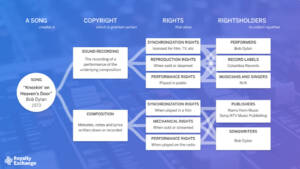Building a Strong Brand as a Musician

Introduction
Why building a strong brand is important for musicians
Building a strong brand is crucial for musicians as it helps them stand out in a highly competitive industry. A strong brand not only establishes a musician’s unique identity but also creates a lasting impression on their audience. It allows musicians to connect with their fans on a deeper level, building a loyal and dedicated fan base. Moreover, a strong brand opens up opportunities for collaborations, sponsorships, and endorsements, which can greatly enhance a musician’s career. By investing time and effort into building a strong brand, musicians can differentiate themselves from the crowd and create a strong presence in the music industry.
The benefits of having a strong brand
Having a strong brand as a musician comes with numerous benefits. Firstly, it helps you stand out in a crowded industry where competition is fierce. A strong brand allows you to differentiate yourself from other musicians and create a unique identity that resonates with your target audience. Secondly, a strong brand builds trust and credibility among your fans and potential collaborators. When you have a consistent and recognizable brand, people are more likely to trust your music and be willing to support you. Additionally, a strong brand opens up opportunities for partnerships and sponsorships. Brands are always looking for musicians who align with their values and image, and having a strong brand increases your chances of securing these lucrative partnerships. Lastly, a strong brand allows you to command higher fees for performances and merchandise. When you have a well-established brand, you can leverage it to negotiate better deals and increase your earning potential. Overall, investing in building a strong brand as a musician is essential for long-term success and growth in the music industry.
Overview of the article
In this article, we will explore the importance of building a strong brand as a musician. A strong brand can help musicians stand out in a crowded industry and attract a loyal fan base. We will discuss the key elements of a strong brand, such as defining your unique identity, creating a consistent visual and sonic identity, and effectively communicating your brand message. Additionally, we will provide practical tips and strategies for musicians to build and maintain a strong brand presence in today’s digital age. By the end of this article, you will have a clear understanding of why building a strong brand is crucial for musicians and how you can start building your own brand to achieve long-term success in the music industry.
Defining Your Brand Identity
Identifying your target audience
Identifying your target audience is a crucial step in building a strong brand as a musician. Understanding who your music resonates with and who your ideal fans are will help you tailor your marketing efforts and create content that speaks directly to them. By identifying your target audience, you can focus your energy and resources on reaching the right people, increasing the chances of building a loyal and engaged fan base. Whether it’s a specific age group, genre preference, or geographic location, knowing your target audience allows you to connect with them on a deeper level and build meaningful relationships that can lead to long-term success in the music industry.
Defining your unique selling proposition
Defining your unique selling proposition is a crucial step in building a strong brand as a musician. Your unique selling proposition is what sets you apart from other musicians and makes you stand out in the industry. It is the essence of your brand and what makes you memorable to your audience. To define your unique selling proposition, you need to identify your strengths, talents, and what makes your music unique. This could be your distinctive voice, your ability to write catchy melodies, or your skill in playing multiple instruments. Once you have identified your unique selling proposition, you can use it to shape your brand identity, create a consistent image, and attract your target audience. By clearly defining your unique selling proposition, you can establish yourself as a musician with a distinct and compelling brand that resonates with your fans and sets you apart in the competitive music industry.
Creating a brand persona
Creating a brand persona is an essential step in building a strong brand as a musician. Your brand persona is the personality and image that you want to portray to your audience. It helps you connect with your fans on a deeper level and differentiate yourself from other musicians. When creating your brand persona, consider your values, interests, and the type of music you create. Think about how you want to be perceived by your audience and what emotions you want to evoke. By developing a unique and authentic brand persona, you can attract a loyal fan base and establish yourself as a memorable and influential musician.
Visual Branding
Designing a memorable logo
Designing a memorable logo is a crucial step in building a strong brand as a musician. A well-designed logo not only serves as a visual representation of your music, but it also helps create a lasting impression on your audience. When designing a logo, it is important to consider elements such as color, typography, and symbolism that align with your music style and persona. A memorable logo can make your brand instantly recognizable and help you stand out in a competitive industry. It is worth investing time and effort into creating a logo that reflects your unique identity as a musician and leaves a lasting impact on your fans.
Choosing a color palette
Choosing a color palette is an essential step in building a strong brand as a musician. Colors have the power to evoke emotions and create a visual identity that resonates with your audience. When selecting a color palette, it is important to consider the genre of music you represent and the emotions you want to convey. For example, warm and vibrant colors like red and orange can evoke energy and excitement, while cool and calming colors like blue and green can create a sense of relaxation and tranquility. Additionally, it is crucial to ensure that the colors you choose are consistent across all your branding materials, including your logo, website, album covers, and social media profiles. This consistency will help establish a cohesive and recognizable brand image that will leave a lasting impression on your fans and potential listeners.
Creating consistent visual assets
Creating consistent visual assets is crucial for building a strong brand as a musician. When your audience sees consistent visuals across your website, social media profiles, album covers, and promotional materials, it helps to create a cohesive and memorable image. Consistency in visual elements such as colors, fonts, and imagery not only enhances recognition but also builds trust and credibility. By investing time and effort into developing and maintaining consistent visual assets, you can establish a professional and recognizable brand that resonates with your audience and sets you apart from other musicians in the industry.
Online Presence
Building a professional website
Building a professional website is crucial for musicians who want to establish a strong brand. A well-designed and user-friendly website not only showcases your music and talent, but also serves as a hub for your online presence. It allows you to connect with your fans, promote your upcoming shows and releases, and sell merchandise or tickets directly. A professional website also gives you credibility and professionalism, making it easier for industry professionals and potential collaborators to find and contact you. By investing time and effort into building a professional website, musicians can create a strong online presence and enhance their brand image.
Optimizing social media profiles
Optimizing social media profiles is crucial for musicians who want to build a strong brand. Social media platforms provide a unique opportunity to connect with fans, promote music, and showcase the artist’s personality. By carefully curating their profiles, musicians can create a cohesive and professional online presence that resonates with their target audience. This includes using high-quality profile pictures, writing engaging and informative bios, and regularly updating content to keep fans engaged. Additionally, optimizing social media profiles involves utilizing relevant keywords and hashtags to increase discoverability and reach. With the right approach, musicians can leverage social media to effectively build their brand and connect with a wider audience.
Creating engaging content
Creating engaging content is crucial for building a strong brand as a musician. In today’s digital age, where attention spans are shorter than ever, it is important to captivate your audience with content that is not only entertaining but also meaningful. Whether it’s through music videos, live performances, or social media posts, the key is to consistently deliver content that resonates with your fans. By creating engaging content, you can establish a deeper connection with your audience, build a loyal fan base, and ultimately strengthen your brand as a musician.
Building a Fanbase
Connecting with your audience
Connecting with your audience is crucial for building a strong brand as a musician. It is not enough to simply create great music; you need to establish a genuine connection with your fans. One way to do this is by engaging with them on social media platforms, such as Instagram, Twitter, and Facebook. By sharing behind-the-scenes glimpses into your creative process, responding to comments and messages, and showing appreciation for their support, you can create a sense of community and loyalty among your audience. Additionally, performing live shows and interacting with fans in person can further strengthen this connection. By making an effort to connect with your audience, you can build a strong brand that resonates with your fans and sets you apart from other musicians.
Engaging with fans through live performances
Engaging with fans through live performances is a crucial aspect of building a strong brand as a musician. It is during these live shows that artists have the opportunity to connect with their audience on a deeper level, creating a memorable and immersive experience. Whether it’s through energetic stage presence, captivating storytelling, or interactive crowd participation, live performances allow musicians to showcase their unique talents and establish a personal connection with their fans. These interactions not only leave a lasting impression but also help to foster a loyal and dedicated fan base. By consistently delivering exceptional live performances, musicians can build a strong brand that resonates with their audience and sets them apart from the competition.
Utilizing email marketing
Utilizing email marketing is a powerful strategy for musicians looking to build a strong brand. With the ability to directly reach and engage with fans, email marketing allows musicians to promote their music, upcoming shows, and merchandise. By creating personalized and targeted email campaigns, musicians can cultivate a loyal fan base and establish a direct line of communication. Additionally, email marketing provides valuable insights into fan preferences and behaviors, enabling musicians to tailor their marketing efforts and deliver content that resonates with their audience. Overall, incorporating email marketing into their promotional strategy can help musicians establish a strong brand presence and connect with fans on a deeper level.
Collaborations and Partnerships
Working with other musicians and artists
Working with other musicians and artists is essential for building a strong brand as a musician. Collaborating with talented individuals not only expands your network but also allows you to tap into new creative ideas and perspectives. By working together, you can create unique and memorable experiences for your audience, which helps to establish your brand identity. Additionally, collaborating with other musicians and artists can lead to exciting opportunities such as joint performances, music collaborations, and even cross-promotion. It is through these partnerships that you can reach a wider audience and gain more recognition in the music industry. Therefore, it is crucial to actively seek out opportunities to work with other musicians and artists to strengthen your brand and elevate your music career.
Partnering with brands and sponsors
Partnering with brands and sponsors is a crucial aspect of building a strong brand as a musician. Collaborating with well-established brands not only provides financial support but also opens up opportunities for exposure and growth. By aligning with brands that share similar values and target audiences, musicians can enhance their credibility and reach a wider fan base. Additionally, partnering with sponsors can lead to exciting collaborations, such as exclusive merchandise lines or sponsored events, which further strengthen the musician’s brand and create unique experiences for fans. Overall, forming strategic partnerships with brands and sponsors is a powerful way for musicians to establish themselves in the industry and build a strong and recognizable brand.
Cross-promotion opportunities
Cross-promotion opportunities can be a powerful tool for musicians looking to build a strong brand. By collaborating with other artists, sharing each other’s music, and promoting each other’s work, musicians can tap into new audiences and expand their reach. This not only helps to increase visibility but also creates a sense of community and support within the music industry. Additionally, cross-promotion can lead to exciting collaborations and partnerships that can further enhance a musician’s brand and career. Whether it’s through joint performances, guest appearances, or social media shoutouts, leveraging cross-promotion opportunities can be a game-changer for musicians looking to establish themselves as a prominent brand in the music industry.








